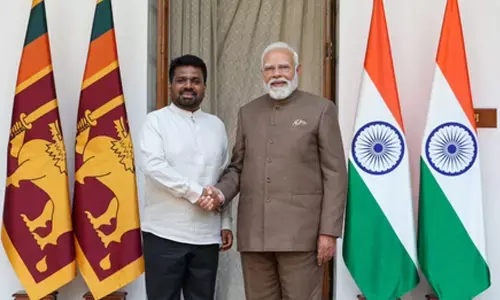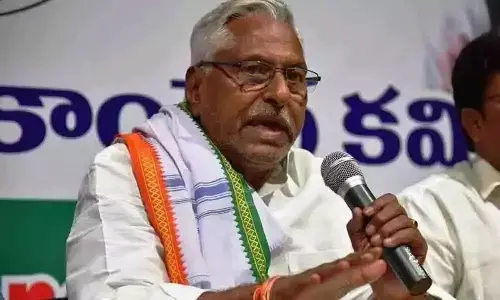Assad era ends in Syria

Syrians have poured into streets echoing with celebratory gunfire after a stunning rebel advance reached the capital, putting an end to the Assad family’s 50 years of iron rule but raising questions about the future of the country and the wider region.
Damascus: Syrians have poured into streets echoing with celebratory gunfire after a stunning rebel advance reached the capital, putting an end to the Assad family’s 50 years of iron rule but raising questions about the future of the country and the wider region.
The former President in question reportedly fled Damascus, with no information yet as to which country will receive him.
Joyful crowds gathered in central squares in Damascus, waving the Syrian revolutionary flag in scenes that recalled the early days of the Arab Spring uprising, before a brutal crackdown and the rise of an insurgency plunged the country into a nearly 14-year civil war.
Others gleefully ransacked the presidential palace and the Assad family residence after President Bashar Assad and other top officials vanished, their whereabouts unknown. Russia, a close ally, said Assad left the country after negotiations with rebel groups and had given instructions to transfer power peacefully.
Abu Mohammed al-Golani, a former al-Qaeda commander who cut ties with the group years ago and says he embraces pluralism and religious tolerance, leads the biggest rebel faction and is poised to chart the country’s future direction.
The end of Assad’s rule deals a major blow to Iran and its allies, already weakened by over a year of conflict with Israel.
Iran, which had strongly backed Assad throughout the civil war, said Syrians should decide their country’s future “without destructive, coercive, foreign intervention”.
The rebels now face the daunting task of healing bitter divides in a country ravaged by war and still split among different armed factions.
Syrian state television aired a video statement early on Sunday by a group of rebels saying that Assad had been overthrown and all prisoners had been set free. They called on people to preserve the institutions of “the free Syrian state”.
The rebels said they had freed people held at the notorious Saydnaya prison, where rights groups say thousands were tortured and killed.
A video circulating online purported to show rebels breaking open cell doors and freeing dozens of female prisoners, many of whom appeared shocked and confused. At least one small child could be seen among them.
Rebel commander Anas Salkhadi, who appeared on State TV later in the day, sought to reassure Syria’s religious and ethnic minorities, saying: “Syria is for everyone, no exceptions. Syria is for Druze, Sunnis, Alawites, and all sects.” “We will not deal with people the way the Assad family did.”
Many of the capital’s residents were in disbelief at the speed at which Assad lost his hold after nearly 14 years of civil war.
Just a week ago, the regime still maintained control over significant portions of the country.
On November 27, a coalition of Opposition fighters launched a major offensive against pro-government forces.
The first attack came at the front line between Opposition-held Idlib and the neighbouring governorate of Aleppo. Three days later, the Opposition fighters took Syria’s second-largest city, Aleppo.
Named Operation Deterrence of Aggression, this offensive was fought by several armed Syrian Opposition groups led by Hayat Tahrir al-Sham (HTS) and supported by allied Turkish-backed factions.
HTS – led by Abu Mohammed al-Julani – is the largest and most organised, having ruled the governorate of Idlib for years before this offensive.
Other groups that took part in the operation were the National Front for Liberation, Ahrar al-Sham, Jaish al-Izza and the Nour al-Din al-Zenki Movement, as well as Turkish-backed factions that fall under the umbrella of the Syrian National Army.









